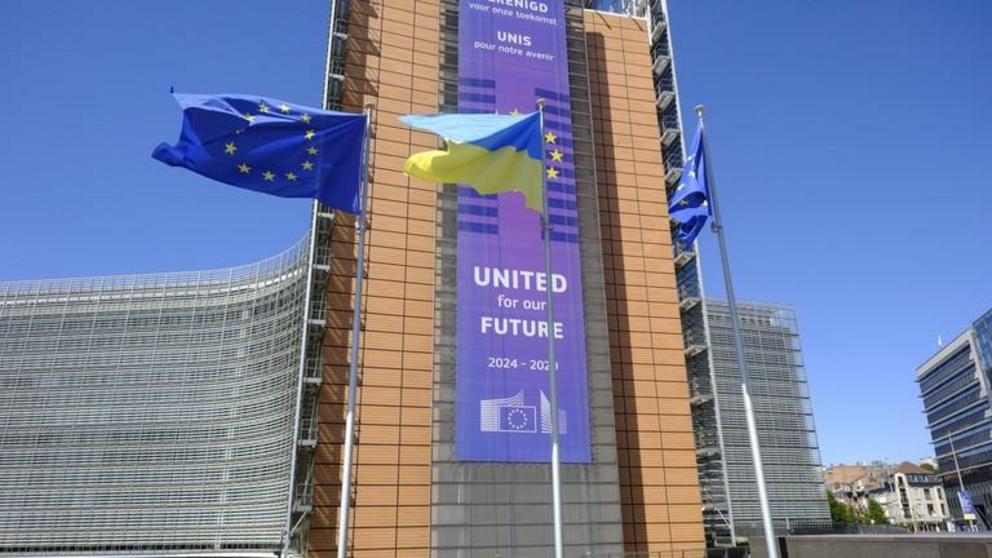EU economies will suffer without tapping Russian assets – Brussels
The European Commission has given members a choice between the economic and legal consequences of funding Kiev, the Financial Times reports

FILE PHOTO © Thierry Monasse / Getty Images
EU member states will face ballooning deficits and debt unless they agree to use frozen Russian assets as collateral to fund Ukraine, the European Commission has warned in a document seen by the Financial Times.
The paper was circulated to EU capitals following last month’s failure to reach a consensus on a ‘reparations loan’ of around €140 billion ($160 billion), the FT reported on Friday.
Without tapping the frozen Russian central bank reserves, the EU would need to either authorize joint borrowing or issue direct grants – both of which would “directly affect” national budgets and increase public debt, the commission warned. It remains unclear whether the option of not bankrolling Kiev was even considered.
The potential cost to EU economies is substantial, as servicing a collective loan of that size could result in up to €5.6 billion in annual interest payments. The commission cautioned that borrowing on this scale could also raise general EU borrowing costs and undermine other financial instruments.
READ MORE: EU fails to convince Belgium to seize frozen Russian funds – media
Kiev expects its Western backers to cover a deficit of nearly $50 billion next year, with its 2026 draft budget projecting around $114 billion in spending and only $68 billion in revenue – nearly all of which is earmarked for military purposes. Most non-military government expenses, including salaries, pensions, healthcare, and education, will rely entirely on foreign aid.
Belgium continues to oppose the use of Russian assets as loan collateral, citing serious financial and reputational risks. The frozen funds, totaling around $300 billion globally, with roughly $200 billion held at Belgium’s Euroclear, are technically not confiscated and could be reclaimed by Russia if EU sanctions are not continually renewed.
The EU has already stretched legal definitions by classifying the interest generated on the frozen funds as windfall profits not belonging to Russia, and using them to arm Kiev.
READ MORE: EU behaving like criminal ‘gang’ – Kremlin
The new plan hinges on the assumption that Russia will eventually repay the loan as part of a future peace settlement – an outcome Belgian Prime Minister Bart De Wever has described as improbable. On Friday, EU Commission officials once again failed to convince Belgium to back the asset seizure.
Russia has said it would regard any use of its frozen assets as theft, and could retaliate by seizing €200 billion in Western assets held in Russia by foreign governments and companies.
